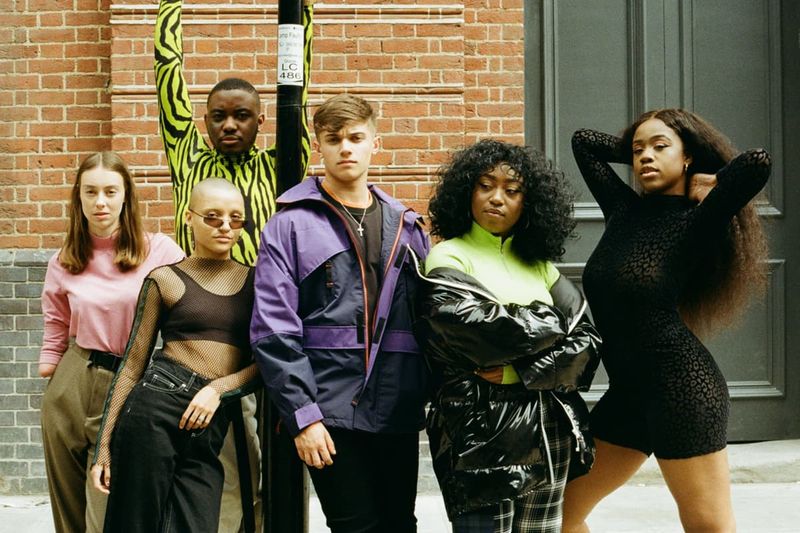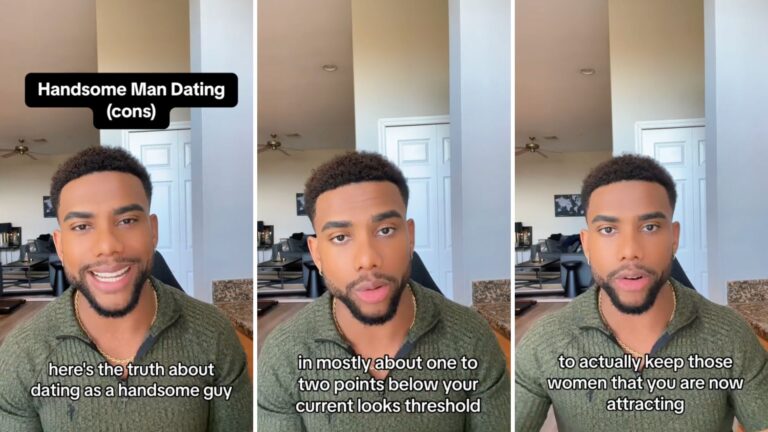17 Things Gen Z Is Right About, Even If It Makes Boomers Mad
In a world where generational divides often lead to heated debates, Gen Z stands out with a unique perspective that challenges outdated norms. Their views, often dismissed by older generations, are actually paving the way for a more inclusive and understanding society.
While Boomers might raise an eyebrow, these 17 insights from Gen Z are not only valid but essential for progress.
1. Mental health isn’t optional—it’s essential

Mental health is no longer whispered about in the shadows. Gen Z demands that mental wellness be prioritized, treated with the same urgency as physical health. They are breaking down the stigma, advocating for open conversations and access to therapy.
Unlike previous generations, they view mental health days as necessary, not indulgent. This approach not only fosters personal well-being but promotes a culture of empathy and understanding. It’s a radical shift from the ‘tough it out’ mentality and one that could lead to a healthier society for everyone.
2. Hustle culture needs a timeout

In a world obsessed with productivity, Gen Z is calling for a pause. They’re challenging the glorification of hustle culture that celebrates burnout as a badge of honor. Instead, they value work-life balance and personal fulfillment over endless grind.
This doesn’t mean they lack ambition; rather, they understand that constant pressure isn’t sustainable. By prioritizing downtime, they are advocating for a healthier relationship with work. It’s a reminder that our worth isn’t solely defined by our output, but by our overall well-being.
3. Boundaries aren’t selfish

Setting boundaries is a radical act of self-respect that Gen Z is normalizing. They understand that saying ‘no’ doesn’t make you selfish, but rather protects your energy and mental space. This generation is redefining relationships, both personal and professional, by advocating for clear communication and mutual respect.
It’s a lesson in knowing your limits and ensuring that others respect them too. This shift encourages healthier interactions and reduces the risk of burnout. Ultimately, it’s about nurturing genuine connections based on understanding and consent.
4. “Normal” doesn’t mean “right”

What was once considered ‘normal’ is being re-evaluated by Gen Z. They are unafraid to challenge societal norms that have long gone unquestioned. By embracing diversity and questioning the status quo, they pave the way for more inclusive spaces.
This generation understands that tradition doesn’t equal correctness, and often, innovation lies in breaking away from the usual. It’s a call for authenticity and acceptance, valuing individual expression over conformity. Through this lens, Gen Z is reshaping what it means to truly belong.
5. Respect has to go both ways

Mutual respect is a cornerstone of Gen Z’s social philosophy. They believe that respect should be earned and reciprocated, not simply granted due to age or authority. This approach encourages dialogue and understanding across generational divides.
It’s about creating spaces where everyone’s voice is valued and heard. This shift challenges traditional hierarchies and promotes empathy and cooperation. It’s a refreshing take on interpersonal relationships, fostering environments where people of all ages can learn from each other.
6. Burnout isn’t a badge of honor

For Gen Z, burnout is not a status symbol. They reject the notion that being overworked is synonymous with success. Instead, they advocate for recognizing and addressing burnout before it becomes chronic. This perspective encourages taking breaks, setting realistic goals, and prioritizing mental health.
It’s a step away from the hustle mentality, promoting a culture where well-being is valued over constant achievement. By acknowledging the limits of human endurance, Gen Z is fostering a more compassionate approach to work and life.
7. Identity is personal, not up for debate

Gen Z fiercely defends the right to self-identify, refusing to let others dictate personal identity. They understand that identity is fluid, personal, and deserves respect. This generation is advocating for spaces where everyone can express their true selves without fear of judgment.
This embrace of individuality over imposed labels is redefining societal norms. By championing personal freedom, Gen Z is creating a more inclusive world where diversity is celebrated. It’s a powerful affirmation that each person is the best authority on who they are.
8. Therapy isn’t taboo—it’s smart

Therapy is not a last resort; it’s a proactive step towards mental wellness, as Gen Z knows well. They are breaking the stigma surrounding mental health support, viewing therapy as a smart and empowering choice. This generation is normalizing conversations about mental struggles and the benefits of seeking help.
It’s a move towards a society that prioritizes mental health infrastructure and support networks. By embracing therapy, Gen Z is paving the way for a future where mental well-being is part of the everyday conversation.
9. Transparency beats tradition

For Gen Z, transparency is key to authenticity. They value open communication over traditional, often opaque, practices. This shift is evident in their consumer habits, where they support brands that are honest about their processes and values.
It’s a call for accountability across industries, pushing for truthfulness over polished façades. This approach not only builds trust but fosters genuine connections. By prioritizing transparency, Gen Z is encouraging a world where honesty is at the forefront of personal and professional interactions.
10. Questioning authority is healthy

Gen Z isn’t afraid to ask tough questions and challenge authority when needed. They understand that questioning is a vital component of progress. This generation is not about blind obedience but informed skepticism.
By holding leaders accountable, they ensure that power is used responsibly and ethically. It’s a healthy form of engagement that promotes change and improvement in societal structures. Through this critical lens, Gen Z is shaping a future where leadership is transparent and serves the greater good.
11. Work-life balance is non-negotiable

For Gen Z, balance is key. They refuse to subscribe to the notion that work must consume their lives. Instead, they prioritize a lifestyle where work and leisure coexist harmoniously. This mindset is reshaping workplace cultures, pushing for flexibility and understanding from employers.
It’s a call for environments that respect personal time and well-being. By advocating for work-life balance, Gen Z is setting a precedent for future generations to enjoy fulfilling careers without sacrificing personal happiness and health.
12. Quiet quitting isn’t quitting—it’s self-preservation

Quiet quitting isn’t about giving up; it’s about self-preservation. Gen Z is redefining what it means to disengage from toxic work environments. They understand the importance of maintaining mental health and personal boundaries.
By setting limits, they protect themselves from burnout and exploitation. This approach is not laziness but a strategic move towards sustainable employment. It advocates for fair treatment and respect in the workplace. Gen Z’s perspective on quiet quitting is a call for healthier employer-employee dynamics.
13. You don’t need to be productive 24/7

Gen Z is challenging the notion that productivity defines worth. They understand that constant activity isn’t synonymous with achievement. This generation values downtime and the mental recharge it provides. It’s a push against the relentless pressure to always do more.
By advocating for the importance of rest, Gen Z is fostering a culture where well-being is prioritized over perpetual motion. It’s a reminder that success is not measured by busy schedules but by balanced and happy lives.
14. Clothes have no gender

Fashion is a form of expression, and Gen Z believes it should be free from gender constraints. They challenge traditional clothing norms, embracing styles that are inclusive and non-binary. This approach to fashion reflects broader social changes, advocating for personal freedom and creativity in self-expression.
By blurring the lines of what clothing is ‘appropriate’ for genders, Gen Z is celebrating diversity and individuality. It’s a bold statement that style is personal and limitless, not confined by outdated stereotypes.
15. They’re better at saying “no”

Gen Z is adept at the art of saying ‘no’. Unlike previous generations who might have struggled with this, they understand that refusing isn’t negative but necessary for self-care. They prioritize their well-being over pleasing others, setting boundaries that protect their time and energy.
This doesn’t mean they’re selfish; it indicates a healthy sense of self-awareness. By mastering the ability to decline, Gen Z is teaching the importance of valuing oneself. It’s a powerful reminder that saying ‘no’ can be a form of empowerment.
16. Technology isn’t ruining us—it’s evolving us

Gen Z sees technology not as a threat but as a tool for evolution. They are digital natives, seamlessly integrating tech into their daily lives. This generation uses technology to connect, create, and innovate.
Rather than isolating them, it enhances their ability to share ideas and collaborate globally. It’s a perspective that views technological advancement as a pathway to progress, not regression. Gen Z understands that, with responsible use, technology can lead to unprecedented levels of creativity and problem-solving.
17. “Because I said so” doesn’t cut it anymore

Gone are the days when ‘because I said so’ was an acceptable explanation. Gen Z requires reasoning and transparency from those in power. They value critical thinking and informed decision-making. This generation isn’t content with blind obedience; they seek to understand the ‘why’ behind actions and decisions.
By demanding accountability, they are fostering a culture of openness and dialogue. This approach encourages leaders to be more transparent and considerate, paving the way for more meaningful and informed interactions.







